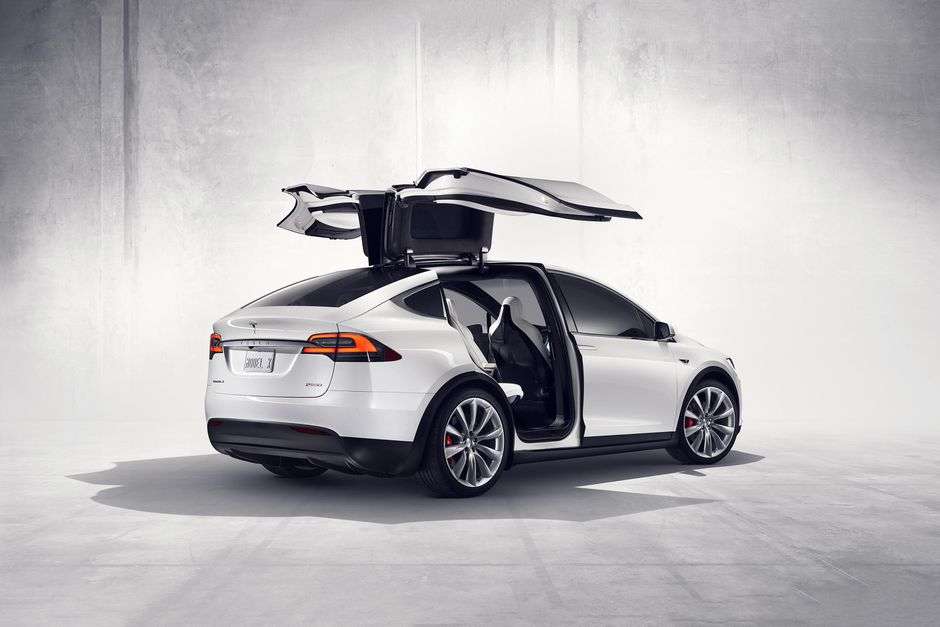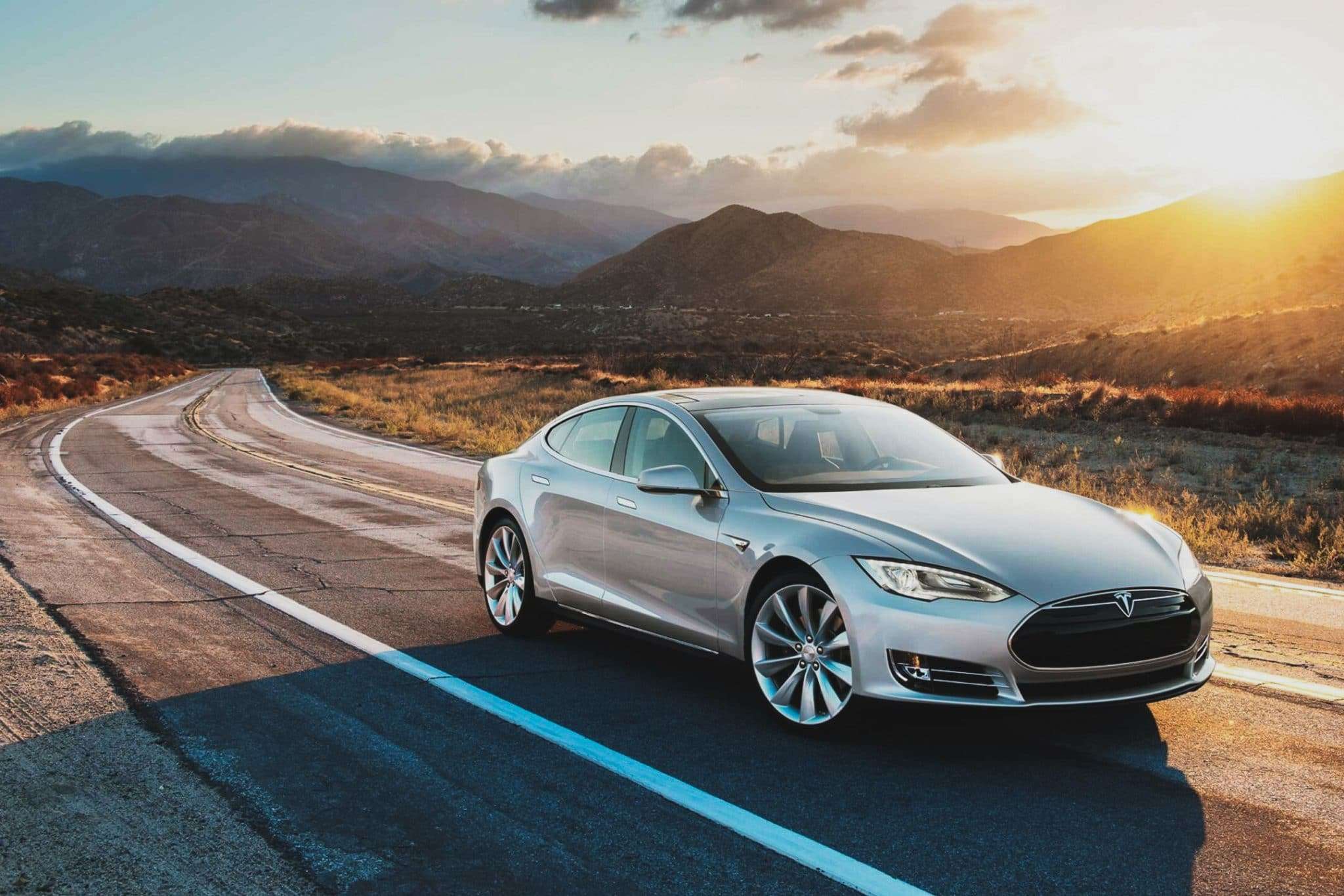Electric cars are changing the luxury car market, and Tesla is leading the way forward, not just as the best-selling EV brand, but the best-selling luxury automaker, too.
New data released by Kelley Blue Book parent company Cox Automotive shows Tesla’s 2021 sales ahead of luxury market leaders including Mercedes-Benz, BMW, and Lexus for the first time.
The news comes after the company exceeded a $1 trillion market value last October—a figure that makes it more valuable than leading automakers General Motors, Ford, Toyota, Volkswagen, BMW, and others combined.
According to Cox Automotive, Tesla doesn’t release its U.S. sales figures but based on global sales data Cox was able to determine its U.S. sales by subtracting sales published for its other markets.
Tesla sales
Cox estimates Tesla sold 352,471 cars in the U.S. market in 2021. That’s nearly 20,000 more units than all BMW cars sold; BMW is typically the luxury market leader in the U.S. Tesla sold nearly 50,000 more cars than Lexus and more than 75,000 units over Mercedes-Benz’s 2021 sales. These are all sales figures, not just electric or hybrids.
The announcement comes as sales of new cars are on the decline while sales of electric cars are on the uptick. New car sales fell by more than 21 percent between the last quarter of 2020 and 2021; electric car sales rose by nearly 72 percent during the same period.
Sales were strong in Europe, too for Tesla. The Model 3 was the top-selling EV in Europe last year, pushing the Renault Zoe out of the top EV position. It also displaced traditional bestsellers including the VW Tiguan and Peugeot 3008 SUVs.
Tesla is driving sales via two models, the Model Y SUV and the Model 3 sedans. It sold 190,000 Model Ys and nearly 122,000 Model 3s in the U.S., Cox reports. Less than a decade ago in 2014, Tesla’s all-time sales were at 2,500 units in the U.S. Revenue for Tesla hit nearly $950 billion earlier this week.
Globally, it delivered nearly one billion cars in 2021, 87 percent more than 2020’s numbers. More than 300,000 of those came in the fourth quarter.
In 2014, a Morgan Stanley analyst predicted Tesla would miss its 2020 target of producing 500,000 cars; the analyst, Adam Jonas, said Tesla would miss the mark by 40 percent. But the brand surpassed its target, producing 510,000 vehicles by the end of 2020, exceeding its goal by 2 percent and performing 19 percent better than 2019’s numbers.
The EV market
“While there are many competitors in the E.V. space, Tesla continues to dominate market share as evidenced again this quarter,” Daniel Ives, an analyst at Wedbush Securities, wrote in a note to investors about Q4 2021 sales.
Last year marked Tesla’s first year of profits from car sales. The electric car company has earned revenue from emissions credits its sold to other automakers since it launched nearly two decades ago, but this was its first year turning a profit from vehicle sales.
That patience may continue to pay off for Tesla, despite what may look like a setback. The automaker announced plans to delay all new model releases slated for 2022, including the hyped Cybertruck, as well as the Roadster, and budget-friendly Model 2, as the industry faces a microchip shortage.
“If we were to introduce new vehicles, our total vehicle output would decrease,” Tesla CEO Elon Musk said on a recent call.
He told reporters Tesla’s focus for the foreseeable future is on outfitting current units with new microchips. It switched to chips more readily available, an advantage over competitors. Tesla’s software allows for easy substitution.
“The shortage forced most automakers to idle some plants for weeks at a time and kept them from producing as many vehicles as they had planned,” reported the New York Times.
Tesla has also been working on building a fully recyclable battery. Last year the automaker said it was able to recycle more than 92 percent of EV battery materials—an industry milestone.
The carmaker said it’s working on an “in-house, closed-loop recycling system that will ensure 100% of Tesla batteries received are recycled and up to 92% of their raw metals reused.”
Luxury car leader Bentley, which has yet to release a fully electric vehicle—that launch is slated for 2025—sys it will launch with a fully recyclable powertrain, part of the OCTOPUS research project (Optimised Components, Test and simulatiOn, toolkits for Powertrains which integrate Ultra high-speed motor Solutions).
EVs in America
Despite Tesla’s success and its ongoing efforts to reduce the transportation industry’s emissions, Musk showed frustration recently as President Biden hasn’t acknowledged the carmaker’s influence in the U.S. EV market.
Tesla was snubbed from the White House’s electric vehicle summit last August. Last week, the Biden administration also left Tesla and Musk out of “Build Back Better” summit that included CEOs from General Motors and Ford.

In a video posted to Biden’s Twitter account, the President posed with GM CEO Mary Barra, stating that “companies like GM and Ford are building more electric vehicles here at home than ever before.”
Musk said the move by the President is driven by his union backers. In a Tweet, Musk said Biden “is treating the American public like fools.”


